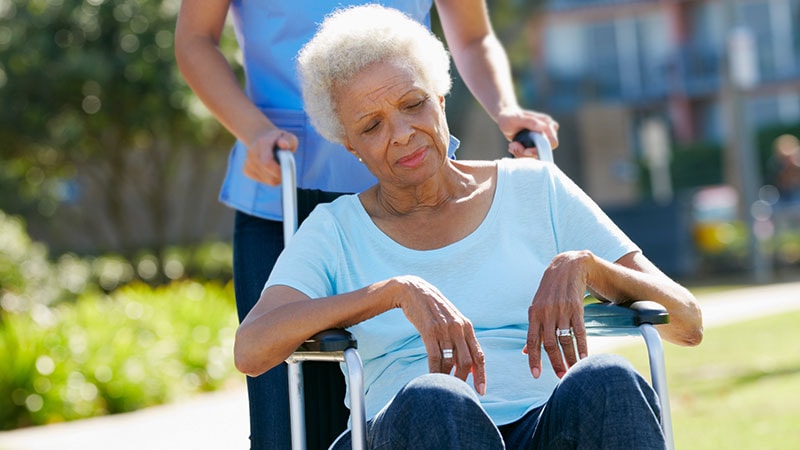A new study published in the Annals of Internal Medicine found atypical antipsychotics were not safer than haloperidol when it comes to treating postoperative delirium in older patients.

Dr Dae Hyun Kim
Dae Hyun Kim, MD, ScD, associate professor of medicine at Harvard Medical School, in Boston, who is the lead author of the study, said the findings were especially relevant, as the use of atypical antipsychotics, such as quetiapine, olanzapine, and risperidone, has increased while use of haloperidol has fallen.
A separate but related study led by Kim, which was recently published in the Journal of the American Geriatrics Society, showed that between 2008 and 2018, use of haloperidol and benzodiazepines in community hospitals and academic medical centers decreased while use of atypical antipsychotics, antidepressants, antiepileptics, and dexmedetomidine rose (P < .01).
“Clinicians should not think atypical antipsychotics are the safer option to haloperidol,” Kim said. “We should focus on reducing prescriptions.”
Postoperative Delirium
Postoperative delirium is the among the most common complications of surgery in older adults, affecting between 15% and 50% of those patients who undergo major operations. Postoperative delirium is associated with longer hospital stays, poor functional recovery, institutionalization, dementia, and death.
According to research from Harvard Medical School, postoperative delirium is linked to a 40% faster rate of cognitive decline among patients who develop the condition compared to those who do not experience the complication.
While older patients often feel tired or a bit off after surgery, marked changes in mental function, such as confusion, disorientation, agitation, aggression, hallucinations, or persistent sleepiness, could indicate postoperative delirium.
“Antipsychotic medications are most commonly used off label for managing those symptoms of delirium,” Kim said. “What we’ve done is look at the comparative safety of two other drugs.”
Results
In the retrospective cohort study, researchers analyzed data from 17,115 patients aged 65 years and older who were without psychiatric disorders and who received oral antipsychotics after major surgery requiring general anesthesia.
“These results don’t apply to people in emergent situations where there is severe behavior that threatens their safety and others,” Kim noted.
There was no statistically significant difference in the risk for in-hospital death among patients treated with haloperidol (3.7%), olanzapine (2.8%; relative risk [RR], 0.74; 95% CI, 0.42 – 1.27), quetiapine (2.6%; RR, 0.70; 95% CI, 0.47 – 1.04), or risperidone (3.3%; RR, 0.90; CI: 0.53, 1.41).
The study also found statistically insignificant differences in the risk for nonfatal clinical events. Those risks ranged from 2% to 2.6% for a cardiac arrhythmia, 4.2% to 4.6% for pneumonia, and 0.6% to 1.2% for strokes or transient ischemic attacks.

Dr Esther Oh
Esther Oh, MD, PhD, an associate professor at Johns Hopkins University School of Medicine, in Baltimore, said that caring for patients who experience acute changes in mental status or behaviors during hospitalization can be difficult.
“Although there is a lot of evidence in the literature that nonpharmacological methods to address these problems are effective, staff shortages of recent years have made it even more difficult for the care team to institute these methods,” Oh told Medscape Medical News.
Prevention
Oh and Kim agreed that nonpharmacologic strategies, such as ensuring good nutrition and hydration, daily walking, cognitive-stimulating activities, and good sleep hygiene, are effective and safe in preventing postoperative delirium.
“These are common sense interventions, but they require a lot of staffing and training,” Kim said. “It’s a resource-intensive intervention that requires really changing the way hospital staff interacts with older patients in the hospital.”
Second-generation antipsychotic medications often are thought to be safer than haloperidol in terms of side effects, Oh said, but the new findings challenge that assumption.
“Based on the findings from this study and on prior studies of antipsychotic use for older adults, use of all antipsychotics, both first and second generation, should be reviewed carefully to ensure they are being administered at the lowest effective dose for the shortest duration possible,” she said.
The study was supported by the National Institute on Aging of the National Institutes of Health. Kim and Oh have disclosed no relevant financial relationships.
Ann Intern Med. Published online September 5, 2023. Abstract
Kelly Ragan is a journalist living in Colorado.
For more news, follow Medscape on Facebook, X, Instagram, and YouTube.
Source: Read Full Article
